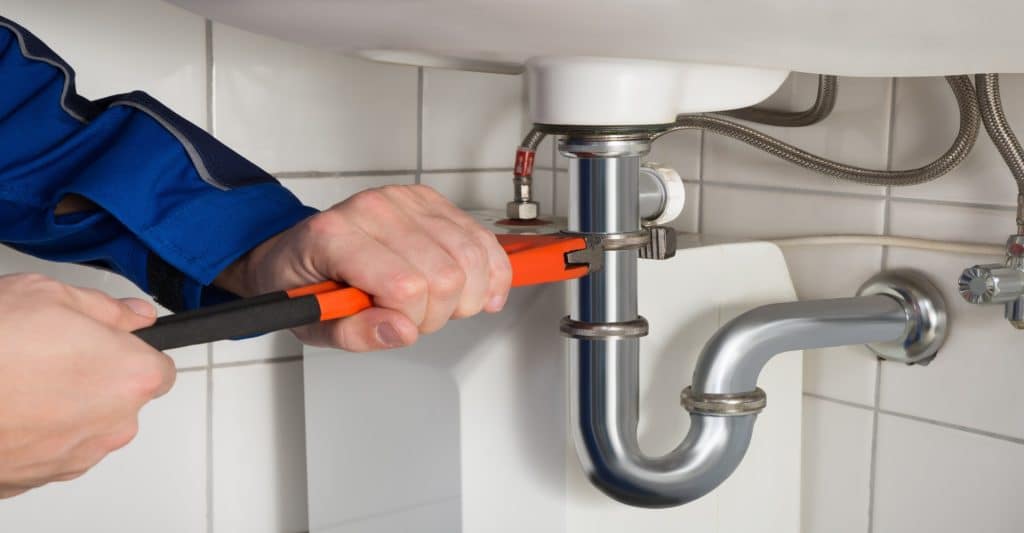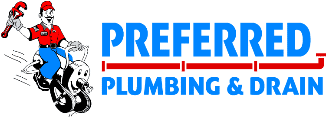
What Skills and Knowledge Should a Plumber Have?
When you look for plumbers, it is important to ensure they are qualified and certified – and that’s just the basics we are talking about. No doubt, a qualified plumber ensures the job is done correctly, saving you from costly future repairs.
Did you know that poor plumbing can lead to water damage that costs an average of $7,000 per incident?
Whether you’re dealing with a simple fix or a major leak, find a professional who offers reliable plumbing services. A skilled plumber can handle any situation, from small leaks to major plumbing emergencies, while providing quality work that lasts.
But what makes a good plumber? How can you tell if they’re qualified? Are they known for their prompt service and professionalism?
If the above questions bother you – don’t worry! Stay hooked till the end, as we have discussed essential qualities that a plumber must have to ensure that your work is getting done on time and efficiently.
| For Reliable and Affordable Plumbing Service – Call Our Experts Today! |
Here we have mentioned 7 top qualities that you must look for while selecting a plumber. Also, we have segregated each quality to ensure you know what exactly to look for.
1. They Must Have Basic Yet Essential Requirements
A professional plumber should have certain credentials that speak for themselves. The following are important requirements that a professional plumber must have –
- Valid Licenses
A licensed plumber satisfies the standards established by the appropriate authorities. If they have a license – it means they have completed the required training. They must have California State’s Contractor License – this increases credibility and instills trust among the customers.
- Accreditations
A professional plumber must also hold several certificates. They must have OSHA safety certificates, EPA certification, and an International Association of Plumbing and Mechanical Officials Membership (IAPMO), among many other qualifications.
- Insurance
Skilled plumbers must possess both liability and worker’s compensation insurance. Worker’s compensation insurance covers any damage that may occur to the plumber or their team while on your property. On the other hand, liability insurance safeguards you as the homeowner if any damage occurs during the plumbing operation.
2. They Must Have Years Of Experience
An expert plumber can identify and resolve any issues you may be having. This is easy for them as they have dealt with a variety of plumbing problems throughout the years. Here are some factors of experience to consider –
- Years In The Industry
People usually hire a plumber with years of expertise under their belt. This indicates that they have amassed a substantial body of knowledge and have a track record of effectively resolving plumbing problems. - Specific Expertise
While some may have vast knowledge of commercial plumbing, others may be specialists in residential plumbing. This ensures they possess the abilities and know-how required to manage your specific task. - Reference
A trustworthy domestic plumber should be able to give you a list of pleased clients who can attest to the quality of their job. Positive recommendations are a great indication that the plumber is reliable, professional, and capable of delivering high-quality work.
3. They Are available 24/7
Since plumbing crises can occur at any time, it’s critical to see if the plumbers are available for you when you need them. Here are some things to think about in terms of accessibility –
- Round-the-clock Emergency Assistance
A trustworthy plumber needs to provide emergency assistance around the clock. Emergency plumbers Modesto can help in any plumbing crisis promptly. This is because even a minor plumbing issue can result in serious damage if they are not handled right away. - Response Time
A good plumber always responds on time. They know plumbing issues can’t wait for long because waiting around might do more harm. When doing your research, find a plumber who can respond to your plumbing problems immediately by asking about their typical response time.
| From leaks to clogs, our plumbing service handles it all — Contact Us Today! |
4. They Must Offer Fair Pricing
The best plumbing services Modesto will offer fair pricing. Here are some factors to consider –
- Clear and Simple Pricing
A good plumber must be transparent about their fees. Also, they must be willing to give concise breakdowns of the expenses related to the plumbing job. Stay away from plumbers who provide you with a price without breaking down the charges. You can prevent any unpleasant surprises and be sure you know what you are paying for with transparent pricing. - Upfront Estimates
Before undertaking any plumbing work, a skilled plumber should offer you an upfront quote. The expected expenses, including any supplies required and the labor charges for the plumber, should be included in this estimate. This helps you compare costs and determine which plumber gives the most value for your money by getting an estimate in writing.
5. They Offer Customer Support
When looking for the best plumbing services in Modesto, you must consider whether they are professional, kind, and responsive. Here are certain factors you must always consider –
- Timely Interaction
A competent plumber should respond to all the questions and take care of any worries you could have. Being able to communicate quickly guarantees that you will be updated at every stage of the plumbing procedure, which is a sign of excellent customer service. - Warranty And Guarantee
Proficient local plumbers in Modesto would provide a guarantee or warranty. You can relax knowing that the plumber will fix any problems that come up after the plumbing repair is done for free.
6. They Offer A Range of Services
Take a look at the variety of services the licensed plumber provides. An expert plumbing company offers the following services –
- Home Plumbing
Seek out a licensed plumber with experience in domestic plumbing if you’re a homeowner. They must know how to solve typical home plumbing problems, including dripping faucets, backed-up drains, and broken water heaters. A residential or domestic plumber must be qualified to operate effectively and efficiently in houses of all sizes. - Commercial Plumbing
Compared to domestic plumbing systems, commercial plumbing might have larger, more elaborate layouts. They must be aware of difficulties associated with business plumbing, such as – managing high water demand and adhering to laws. - Specialized Services
Some plumbers also offer green plumbing services in Modesto. Likewise, some plumbers help you install and repair specific brands or technologies. Selecting a plumber with this specialized knowledge guarantees that you will get the finest care for your particular requirements.
| Keep your plumbing in perfect condition — Contact Us Today! |
7. They Adhere To Safety Procedures
Safety should be a major issue for any professional plumber. Selecting a plumber who prioritizes safety is crucial since plumbing work can entail a number of risks. Here are certain factors that you must take into account –
- Adherence To Rules And Guidelines
A competent plumber has to be well-versed in the rules and codes governing plumbing in Modesto. These codes ensure the functionality of the plumbing systems. A plumber can reduce the possibility of potential hazards and ensure their job satisfies the requirements by following these codes. - Appropriate Safety Equipment
A skilled plumber always wears the proper safety gear when working on plumbing tasks. These could include – hard hats, gloves, safety glasses, or high-visibility vests, depending on the demands of the task. Wearing the appropriate safety equipment lowers the possibility of mishaps or injuries when performing plumbing work. - Safety Measures
When performing plumbing repair, a qualified plumber should take safety measures to reduce any possible dangers or damage. When the job is over, they should also make sure the workspace is neat and orderly.
Takeaway
To ensure both safety and high-quality services, you should only hire licensed and experienced plumbers. The technical know-how of certified Modesto and plumbers allows them to manage even the most difficult plumbing jobs. This lowers the possibility of mishaps or structural damage to your house.
They are trained to detect and treat plumbing issues efficiently, saving time and potential costs from reoccurring problems. Furthermore, to provide dependable and long-lasting solutions, certified plumbers follow industry standards and utilize premium supplies and equipment.
When it comes to fixing leaky faucets, damaged pipes, or drain cleaning – nobody can do the job better than a professional plumber. They ensure that the plumbing system in your house is safe and effective in the long term.
| Area Of Our Plumbing & Drain Services | ||
| Plumbers in Modesto | Plumbers in San Jose | Plumbers In Berkley |
| Plumbers in Stockton | Plumbers in East Bay | Plumbers in Sacramento |
Looking For Qualified Plumbers in Modesto? Preferred Plumbing And Drain Is Just A Phone Call Away!
Whether you have an emergency or just need someone for routine maintenance tasks, our experienced professionals are just a phone call away. We offer fast, reliable, and efficient service. With 24 hours plumbers Modesto, CA, you can rest easy knowing help is available anytime you need it.
In addition to fixing pipes, we offer services such as –
From leak repairs to drain cleaning, we handle all plumbing issues with precision and care.
Call us now for immediate, professional plumbing services Modesto today!


 Request a Service
Request a Service